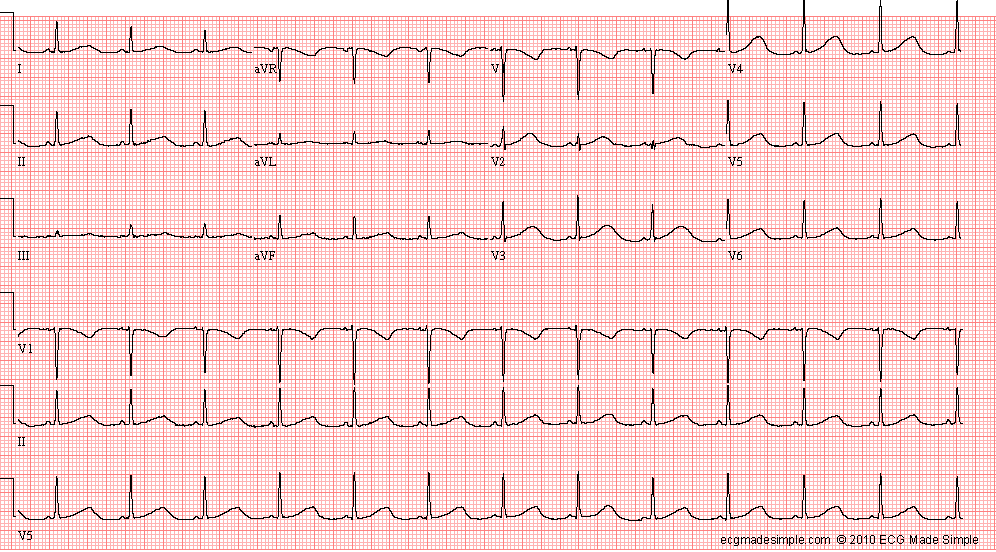Case 12: A 33-Year-Old Woman Who Had a Cardiac Arrest
This 33-year-old woman, who had an episode of cardiac arrest following a minor motor-vehicle accident, is transferred to a secondary-care hospital for further care. Ventricular fibrillation was shown on monitor to have been caused by a pause-dependent late-coupled premature ventricular complex. On the day following resuscitation the patient had recurrent episodes of ventricular tachycardia and overdrive pacing had to be used:

- Sinus rhythm, 75/min
- Short PR interval = 100 msec
- QT/QTc = 496/554 msec
Comment: This ECG is typical of a patient with LQT1, the most common genetic form of long QT syndrome. The hallmark is a fairly symmetrical broad T wave with a prolonged QT interval. This type of long QT syndrome is the most responsive to beta-blocker therapy, as sympathetic stress can often trigger premature ventricular complexes which lead to polymorphic ventricular tachycardia and ventricular fibrillation. The clinical presentation with cardiac arrest precipitated by emotional stress in a young woman with a prolonged QT interval is typical of long-QT syndrome. An ICD was implanted.

ECG ID: E710